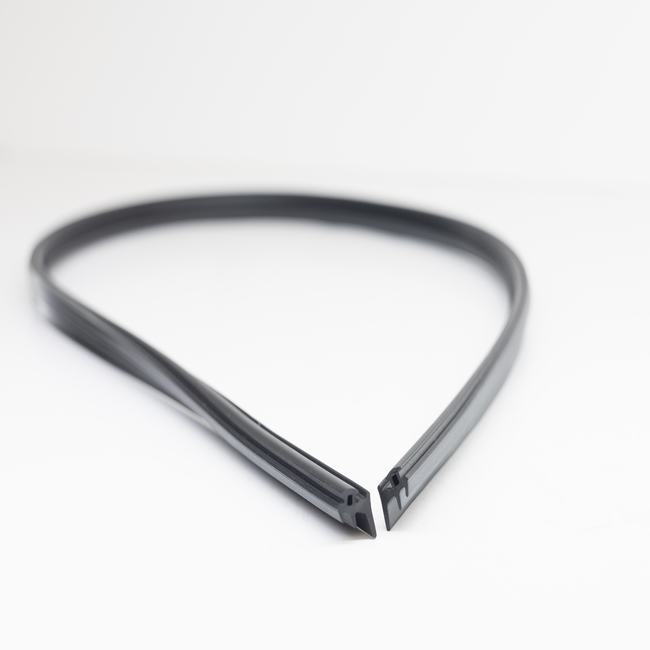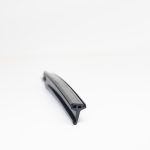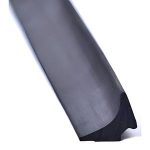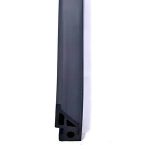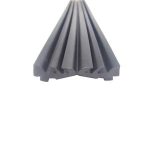Industrial seals are essential components used in a wide range of industrial applications, serving the critical function of creating a barrier to prevent the leakage or ingress of fluids, gases, contaminants, and other substances in machinery, equipment, and systems. These seals are integral to ensuring the efficient and safe operation of various industrial processes and are designed to withstand extreme conditions, including high pressures, temperatures, and mechanical stresses. In this comprehensive description, we will delve into the various aspects of industrial seals, including their functions, types, materials, applications, and key benefits:
1. Functions of Industrial Seals:
Industrial seals play a multifaceted role in industrial settings, performing the following essential functions:
A. Containment: The primary function of industrial seals is to prevent the escape or ingress of fluids, gases, or contaminants. This is critical in maintaining the integrity of the process and ensuring safety.
B. Lubrication: Seals in rotating machinery, such as bearings and pumps, provide essential lubrication by retaining oil or grease within the components, reducing friction, and minimizing wear and heat generation.
C. Environmental Protection: Industrial seals protect equipment and systems from environmental factors such as dust, dirt, moisture, and corrosive substances, prolonging their operational lifespan.
D. Isolation of Components: Seals can isolate different components within a system or machine, preventing cross-contamination and ensuring the proper functioning of each part.
E. Damping and Vibration Control: In some applications, seals contribute to damping and controlling vibrations and oscillations, enhancing equipment stability and reducing noise.
2. Types of Industrial Seals:
There is a wide variety of industrial seals available, each tailored to specific applications and conditions. Common types include:
A. O-Rings: Circular seals typically made of rubber or elastomeric materials, used in a wide range of applications due to their flexibility and ease of installation.
B. Lip Seals (Oil Seals): Used to retain lubricants and prevent the entry of contaminants in rotating equipment, these seals have a flexible lip that contacts the rotating shaft.
C. Gaskets: Flat or contoured seals used to create a leak-tight connection between two surfaces, often in flanged connections and pipe joints.
D. Mechanical Seals: Used in rotating equipment like pumps and compressors, mechanical seals consist of multiple parts that create a dynamic barrier to prevent fluid leakage.
E. Diaphragm Seals: Often used in pressure measurement and control applications, these seals separate process fluids from the measuring instrument, protecting the instrument from corrosive or viscous media.
F. Expansion Joints: These flexible seals are designed to absorb movement and vibration in pipelines and ducting systems to prevent structural damage.
G. Hydraulic Seals: Used in hydraulic systems, these seals are designed to handle high pressures and ensure fluid containment in cylinders, valves, and pumps.
3. Materials Used in Industrial Seals:
Industrial seals are fabricated from a wide range of materials, including:
A. Elastomers: Common elastomeric materials include nitrile, neoprene, silicone, and Viton, each offering specific properties like chemical resistance, temperature tolerance, and flexibility.
B. PTFE (Polytetrafluoroethylene): Known for its excellent chemical resistance, low friction, and temperature stability, PTFE is used in various seal types, especially in aggressive chemical environments.
C. Metals: Metal seals, often made from stainless steel or other alloys, are used in high-temperature, high-pressure, and corrosive applications.
D. Composite Materials: These materials combine the benefits of both elastomers and reinforcing materials like fabric or metals to provide enhanced durability and performance.
4. Applications of Industrial Seals:
Industrial seals find applications across various industries and systems, including:
A. Oil and Gas: In valves, pumps, and pipeline connections to prevent leakage and protect against harsh conditions.
B. Manufacturing: In hydraulic systems, pneumatic systems, and processing equipment to ensure fluid containment and equipment reliability.
C. Automotive: In engines, transmissions, and suspension systems to prevent fluid leaks and reduce friction and wear.
D. Aerospace: In aircraft engines, landing gear, and hydraulic systems to maintain safety and performance.
E. Chemical Processing: In reactors, pumps, and pipelines to contain corrosive and toxic substances.
F. Food and Pharmaceuticals: In processing equipment to ensure product purity and safety.
G. Energy and Power Generation: In turbines, generators, and steam systems to maintain efficiency and prevent leakage.
5. Key Benefits of Industrial Seals:
The use of industrial seals provides numerous benefits, including:
A. Enhanced Equipment Reliability: Industrial seals reduce the risk of fluid leakage, equipment damage, and downtime, leading to improved reliability and extended equipment life.
B. Increased Safety: Seals help maintain a safe working environment by preventing hazardous fluid leaks and minimizing the risk of accidents.
C. Energy Efficiency: By preventing leaks and friction, industrial seals contribute to energy conservation and reduced operating costs.
D. Environmental Protection: Properly sealed equipment reduces the risk of environmental contamination due to leaks or spills.
E. Noise Reduction: Seals in rotating equipment help dampen vibrations and reduce noise levels, enhancing workplace comfort.
In conclusion, industrial seals are fundamental components in a wide array of industrial applications, serving as critical barriers against fluid leakage, contaminants, and environmental factors. Their importance extends to equipment reliability, safety, and efficiency across various industries, making them indispensable components in modern industrial processes. The choice of the right type and material of seal should be based on the specific requirements and operating conditions of the application. Proper installation and maintenance are essential to ensure the seals continue to perform effectively over time.
